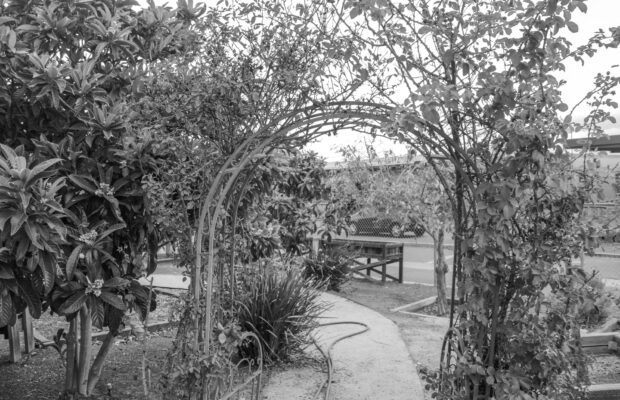The Monarch Project fights alongside the butterflies

Love for monarch butterflies fosters within adolescent years as children’s dreams are often consumed with the possibility of one landing upon their nose. But within recent years, fewer and fewer butterflies have been seen fluttering their wings due to the destruction of their habitats. The Monarch Project, a club taking place at Newbury Park High School, has initiated a project to help fight alongside the butterflies in hopes of saving them.
Through volunteering at the Santa Monica Mountains Native Plant Nursery, Sara Mansourian, junior, became aware of the various dangers monarchs face and was inspired to start the Monarch Project. “The monarch butterfly population is endangered due to deforestation and fires within California so we are creating a monarch way station, which is a garden that provides host plants for monarch butterflies to pollinate. The way station supplies the monarchs with native milkweed which is the only plant they eat and lay eggs on,” Mansourian said.
Butterflies have always been a staple of California, being beneficial to the environment and pollinating over 75 percent of the world’s flowering plants. Ria Dudhia, junior and publicist of the Monarch Project, finds that the production of the garden is a small way of repaying the favor. “I really think that this project could potentially help the monarch butterflies who are endangered,” Dudhia said. “[The monarchs] don’t have a habitat to live in and that’s why we are building a garden so it can be a safe haven for them to come to.
After hearing about the club’s mission, Jillian Abbott-Gonzales, junior, was inspired to join and attended the very first meeting held. “I’m looking forward to all the volunteer opportunities because we have the opportunity to go to the Santa Monica Mountains and help with their garden,” Abbott-Gonzales said. “Being able to go up there with the club will be very fun and I’m so lucky to volunteer with such a sweet group of people alongside me.”
Without knowledge related to native plants, helping the monarchs can be challenging, therefore the club emphasizes the importance of educating their members. “I’ll put together slideshows to teach people about native plants and then we are going to have different events throughout the year for planting the garden itself, which those events will be in increments,” Mansourian said. The club meets once a month in E5 on Thursdays, working towards building the garden and volunteering amongst other organizations.



